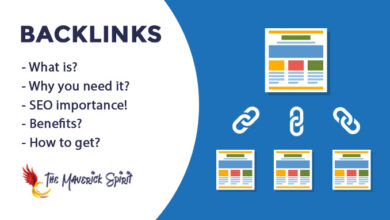The Rise of Eco-Friendly Products
In recent years, there has been a significant shift in consumer behavior towards more environmentally responsible choices. Eco-friendly products are gaining traction as people become increasingly aware of their impact on the planet. This trend encompasses a wide range of goods, from household items and personal care products to fashion and food. In this article, we’ll explore the benefits of eco-friendly products, their rising popularity, and how businesses can capitalize on this growing market.
What Are Eco-Friendly Products?
Eco-friendly products, also known as environmentally friendly or sustainable products, are items designed to have minimal impact on the environment throughout their lifecycle—from production and use to disposal. These products are typically made from renewable resources, utilize sustainable manufacturing processes, and are often biodegradable or recyclable. The aim is to reduce waste, conserve natural resources, and lower carbon footprints, contributing to a healthier planet.
Why Are Eco-Friendly Products Becoming Popular?
1. Increased Environmental Awareness
One of the main drivers behind the growing popularity of eco-friendly products is the increasing awareness of environmental issues. Documentaries, social media campaigns, and news reports have highlighted the consequences of climate change, pollution, and resource depletion. As a result, consumers are more motivated to make purchasing decisions that align with their values and support sustainability.
2. Health Benefits
Many eco-friendly products are not only good for the environment but also better for human health. Conventional products often contain harmful chemicals and toxins that can affect both personal well-being and environmental health. For example, eco-friendly cleaning products usually use natural ingredients that are safe for use around children and pets, promoting a healthier indoor environment.
3. Government Regulations and Initiatives
Governments around the world are implementing stricter regulations on pollution and waste management, encouraging both consumers and businesses to adopt eco-friendly practices. Incentives such as tax breaks for using sustainable materials or penalties for excessive waste are prompting companies to develop and market eco-friendly products.
4. Millennial and Gen Z Influence
Younger generations, particularly Millennials and Gen Z, prioritize sustainability and ethical practices in their purchasing decisions. They tend to support brands that demonstrate a commitment to eco-friendliness, transparency, and social responsibility. Companies that fail to adapt to this shift risk losing market share to competitors who embrace sustainability.
Types of Eco-Friendly Products
The range of eco-friendly products available on the market is vast and continues to expand. Here are some popular categories:
1. Household Products
From biodegradable cleaning supplies to reusable kitchen items, eco-friendly household products are becoming mainstream. Brands like Seventh Generation and Method offer cleaning solutions that are free from harsh chemicals and utilize sustainable packaging.
2. Personal Care Products
Many personal care brands are now producing eco-friendly cosmetics, shampoos, and skincare items that avoid synthetic ingredients. Look for brands that emphasize natural ingredients and sustainable sourcing, such as Lush and Burt’s Bees.
3. Fashion and Accessories
Sustainable fashion is on the rise, with many brands focusing on eco-friendly materials, ethical labor practices, and minimal waste. Companies like Patagonia and Everlane prioritize sustainability in their production processes, offering everything from activewear to casual clothing made from organic or recycled materials.
4. Food and Beverage
The demand for organic, locally sourced, and plant-based food products has surged as consumers become more health-conscious and environmentally aware. Eco-friendly food products often come from sustainable farming practices, reducing the carbon footprint associated with agriculture.
5. Home Goods
Home goods such as furniture, kitchenware, and bedding can also be eco-friendly. Brands that use reclaimed wood, organic textiles, and non-toxic finishes are becoming increasingly popular among eco-conscious consumers.
How Businesses Can Embrace Eco-Friendly Practices
For businesses looking to tap into the growing market for eco-friendly products, several strategies can help them align with consumer expectations:
1. Sustainable Sourcing
Evaluate your supply chain and seek sustainable sourcing options for raw materials. This could involve partnering with suppliers who prioritize renewable resources and ethical labor practices.
2. Eco-Friendly Packaging
Reduce plastic waste by opting for biodegradable, recyclable, or reusable packaging options. Brands like Uncommon Goods have successfully utilized eco-friendly packaging to enhance their sustainability image.
3. Transparency and Education
Communicate openly with customers about your eco-friendly practices and the benefits of your products. Use social media and content marketing to educate consumers about sustainability issues and how your products contribute to solutions.
4. Product Lifecycle Analysis
Conduct a lifecycle analysis of your products to identify areas for improvement in sustainability. Understanding the environmental impact of each stage—from production to disposal—can help you make more informed decisions.
5. Community Engagement
Engage with your local community and support environmental initiatives. Collaborating with local non-profits or participating in sustainability events can enhance your brand’s reputation and appeal to eco-conscious consumers.
The Future of Eco-Friendly Products
The demand for eco-friendly products is likely to continue growing as consumers become more aware of their purchasing decisions’ environmental impact. Companies that adapt to this trend will not only benefit from increased sales but also contribute to a more sustainable future.
In summary, eco-friendly products represent a promising opportunity for businesses to align with the values of today’s consumers. By prioritizing sustainability, companies can build trust, foster loyalty, and positively impact the planet. For consumers, choosing eco-friendly products is a small yet powerful way to contribute to a healthier, more sustainable world.



